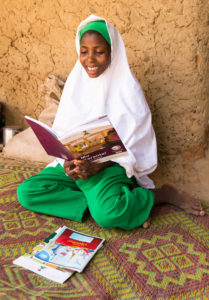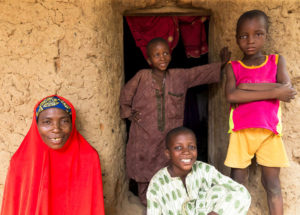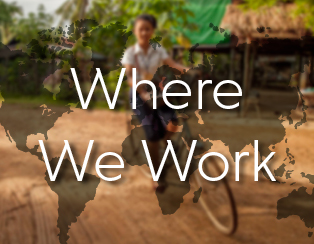Thousands of out-of-school Nigerian children readied for formal school
By Boco Edet AbdulAugust 17, 2017
Meet Hadiza Hamza, one of these students who transitioned to the classroom
SOKOTO – Until recently, Hadiza Hamza was one among the millions of children not attending school in northern Nigeria.
A resident of the Malamawa community in Nigeria’s Sokoto state with limited access to formal education, Hamza and her six siblings attended Qur’anic schools and assisted their parents during the farming seasons.
Now, she sits at the back of a fourth grade classroom at Malamawa Primary School, pointing at words in a passage and reading aloud with fellow students.
How did she get here?

Last year, Hamza enrolled in a basic literacy program in a community-based non-formal learning center, introduced by the USAID-funded Northern Education Initiative Plus project. Implemented by Creative Associates International’s Instructional Systems team, the project is providing access to quality education and improving reading skills for more than two million school-aged children in formal and non-traditional schools.
“I wanted to be educated but I never had an opportunity till a center opened in our community,” Hamza says. “I could learn to read and write conveniently.”
To-date, the project has enrolled more than 36,000 children—who, like Hadiza Hamza, were once out-of-school— into 800 non-formal learning centers across educationally disadvantaged communities in Bauchi and Sokoto states.
In addition to reaching students ages 5 to 17 with quality education, the project also trains educated community members as learning facilitators to teach literacy, numeracy and life skills in Hausa, the mother tongue language spoken in Sokoto and Bauchi, and help students transition to English.
Mohammed Yusuf Gama, Access & Fragility Officer Sokoto state, coordinates all the access and fragility activities for the Northern Education Initiative Plus project and helps build capacity for 10 local government access and fragility coordinators and NGOs to establish non-formal learning centers.
“Our non-formal learning centers introduce education to most out-of-school children and after completing our basic literacy program facilitates their entry to formal schools,” says Gama.
Hadiza’s journey to quality education and formal schooling
During the six-month program, children like Hamza attend classes for a minimum of six hours every week. They receive textbooks developed by the USAID-funded Northern Education Initiative Plus project as well as writing materials to aid their learning.
When a non-formal learning center opened in her small community, Hamza asked her father, who is an Islamic Cleric, to enroll her.
“I enjoyed attending classes,” she says. “I loved my books. I liked the pictures, especially the airplane. I know one day I will travel in it when I become a teacher.”
Hamza is making progress toward her dream. In March 2017, she wrote and passed an exit examination certifying she had completed the basic literacy program, which meant she could continue her studies in fourth grade at a nearby formal school.

The exam was conducted by the regulatory body for non-formal education in Bauchi and Sokoto states, the State Agency for Mass Education.
Almost 90 percent of 31,631 children tested on literacy, numeracy and life skills subjects taught during the basic literacy program passed and qualified to be mainstreamed into formal schools.
Looking forward, the project has mobilized school authorities at formal schools in anticipation of the arrival of these new fourth grade students when classes begins in September. The Northern Education Initiative Plus project has also worked to build ownership and commitment of the quality basic education initiative among federal, state and local government.
Eager to continue learning after passing her exam, Hamza convinced her parents to allow her to start attending classes in fourth grade back in March before she formally enrolls in the new school year in September.
Her mother, Asmau Hazma, sees her daughter Hadiza as a role model for the family. She is eager to support her daughter’s dream of furthering her education.
“I am a very proud mother. Seeing how Hadiza can now read and write has made me realize the value of education,” she says.


